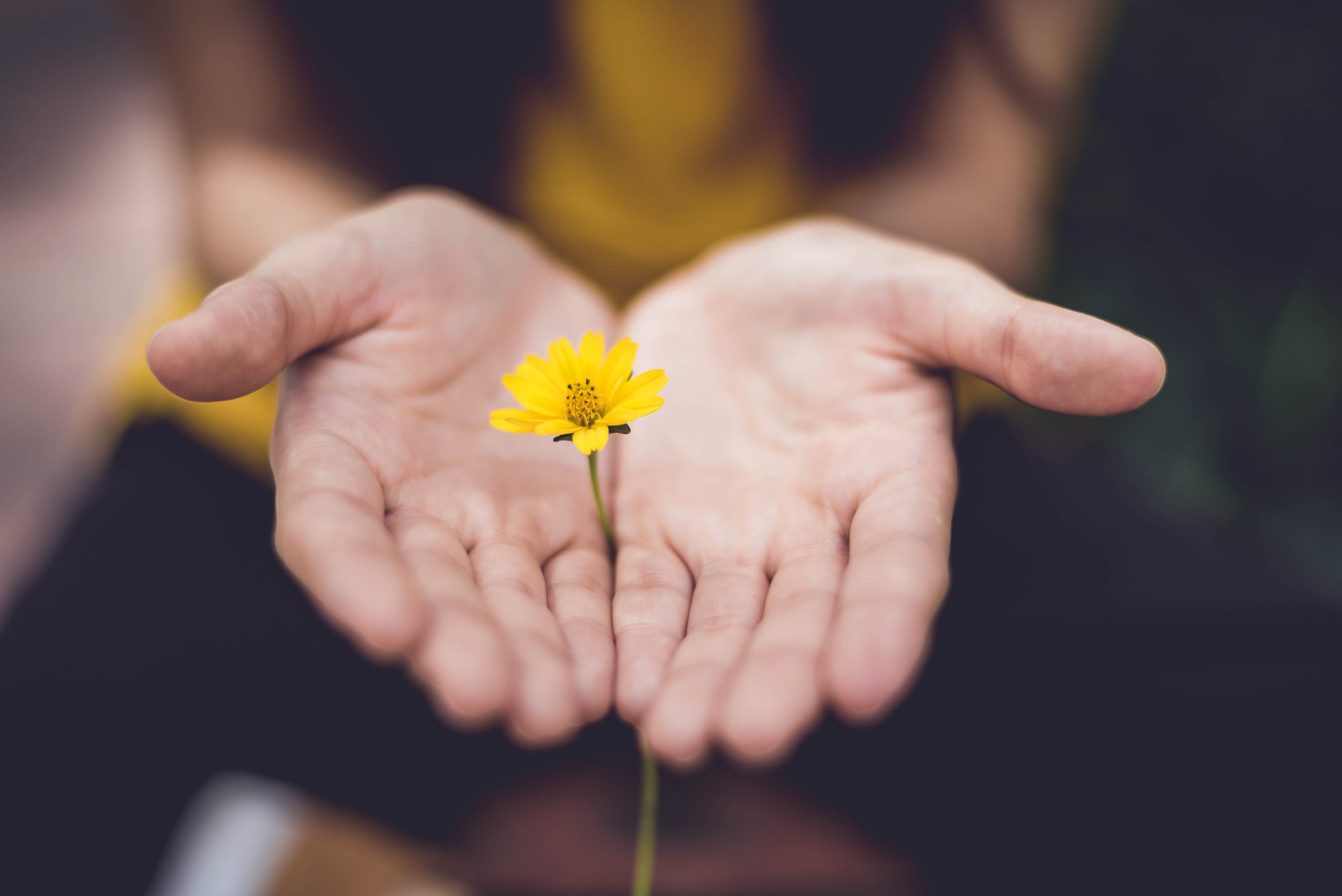Finding Harmony with the Inner Critic
Our internal house can sometimes harbor different voices, different perspectives on the same circumstance. When we are at war within, how can we truly know how we feel?
For instance, take my decision to open my private practice...part of me was thrilled and excited, ready for the adventure that comes from entrepreneurship. Another part of me was terrified and negative, certain that this was a silly decision. In the end, my internal cheerleader and risk-taker won the battle, placating my inner critic with the reasoning that I could always return to a 9-5 position if it didn’t work out.
But how are we to deal with our internal landscape, when we can have differing opinions and emotions towards the same circumstance? It’s difficult enough to deal with external feedback, let alone be split into opposing teams within ourselves.
I’ve come to call this more fearful part of myself the “inner critic," or sometimes, my “inner skeptic.” This is the part of me that has internalized messages, likely from a young age, of fear and lack from the broader cultural landscape, or from personal experiences. It’s the part of myself that worries about finances, takes to heart stories of failure or loss, or worries about potential or actualized missteps.
This is the part of me that keeps me on my toes and ready for disaster just around the corner. What I notice about this part of myself, however, is that my worst-case fears rarely ever come to fruition, while my internal anxiety gears have kept me in overdrive in anticipation of a non-event, or feeling badly after minor hiccups or upsets in my life.
It’s interesting to note that this internal curmudgeon seems to be a relatively common feature of the human experience when you start to talk to others about their own inner dialogues. Why is this?
When we zoom out to the cultural foundation for our ways of thinking, we find that we are influenced in so many different directions: media, institutions, books, tv, others’ opinions. I call this our "collective consciousness." We’ve all been stewing in it since we were children, born and raised amidst a collective way of thinking. It’s sometimes hard to step out of a collective box, when you’ve only ever experienced what’s inside the box, with no context for what’s outside. It’s hard to strive for higher versions of yourself, when the cultural landscape only gives you specific models of ways to succeed or live. In a spiritual context, this is the age-old struggle between our ego-selves and our higher selves.
Our ego-selves are a creation of our environments, a collection of personality traits we have identified with and strengthened over time as we learn to fit into the roles society expects us to play, you know the ones: socially acceptable pathways and timelines for working, living, dating, raising children, etc., complete with gender-appropriate or age-appropriate behaviors. It seems that the inner critic resides within this complex ego-personality we create for ourselves, perhaps internalizing the parts of ourselves that grew up learning there is a good and a bad way to be, that there are acceptable and unacceptable behaviors.
So in this sense, the inner critic was created with a positive purpose in mind: to be the signaler when you were getting "off-course," when you were in danger of losing approval from significant others around you. And let’s face it, even in the most loving and forgiving of upbringings, we live in a culture that’s been built on messages of right/wrong, black/white, winning/losing, and concrete gradations of performance.
Everyone can remember instances of reprimand or getting “in trouble” in childhood. And even in adulthood, there are still social consequences, like judgements from others, when one attempts to step outside of current social norms or take extraordinary risks, often the very things that tends make a human life notable and unique, or provide us with forward momentum.
So what’s to be done? If our inner critic was created for such a useful purpose of creating safety and social harmony in our younger years, how can it wreak such havoc upon us in later years, when we attempt to take risks or break away from linear decision-making, or sometimes even in every day decision making?
I have found my inner critic at times to be paralyzing in the smallest of circumstances, making its voice be known when updating my website or setting up my schedule for the day. This small voice tends to pack a powerful punch, demanding my attention to potential mistakes that could be emerge within my day.
And on a broader level it creates the grey cloud that separates us from the higher aspects of ourselves, blocking higher levels of spiritual or life clarity. It's hard to move forward with certainty of purpose and confidence when there is glaring spotlight on all the things that could go wrong.
So what’s to be done?
Fighting the inner critic I've found usually doesn’t work, often only lending strength and fervor to its tenuous arguments. Bypassing it doesn’t tend to make it go away either, only putting it off for another day or stuffing it behind a wall that will eventually crumble. The only plausible solution appears to be communicating with our inner critic head on, determining it’s needs and why it’s demanding our attention. When we look deeper, the inner critic is often only the hurt part of ourselves needing to protect ourselves from potential harm or the rigid part of ourselves assuming that staying in place with a known set of circumstances is a better bet than moving into the unknown.
Often the inner critic may even be fearful of expanding into our own states of higher consciousness or adopting new belief systems, as this can initiate personal change, which is disruptive to the self as we’ve always known ourselves to be. This is why when faced with large change or transitions in our lives, the inner critic can go into hyperdrive, analyzing or redirecting our thoughts into lower, more comfortable pathways. It’s scary to expand into new ways of being
The secret, however, (the only one I’ve found so far) to shifting oneself beyond the inner critic is to love and accept this part of ourselves for its service to the whole self. It’s the part of ourselves concerned with safety, with fitting in, with comfort and known variables. Of course it will kick up a fuss at the slightest hint of change or self-growth, as it's more than likely to bring its fair share of risk. When we can actually acknowledge and thank this internal voice for the slice of wisdom it brings and has brought, even when counterproductive, it often tends to retract, finding solace in the knowing that it has been seen, even if you choose not to buy into its stories of recrimination or certain doom.
The inner critic, I find, is just like you and I. No better or worse. No more or less a part of the whole. It just wants to be seen, to be loved, and to be received rather than rejected. So at the end of the day, it's not really a battle that can be won, only a battle to be one.

